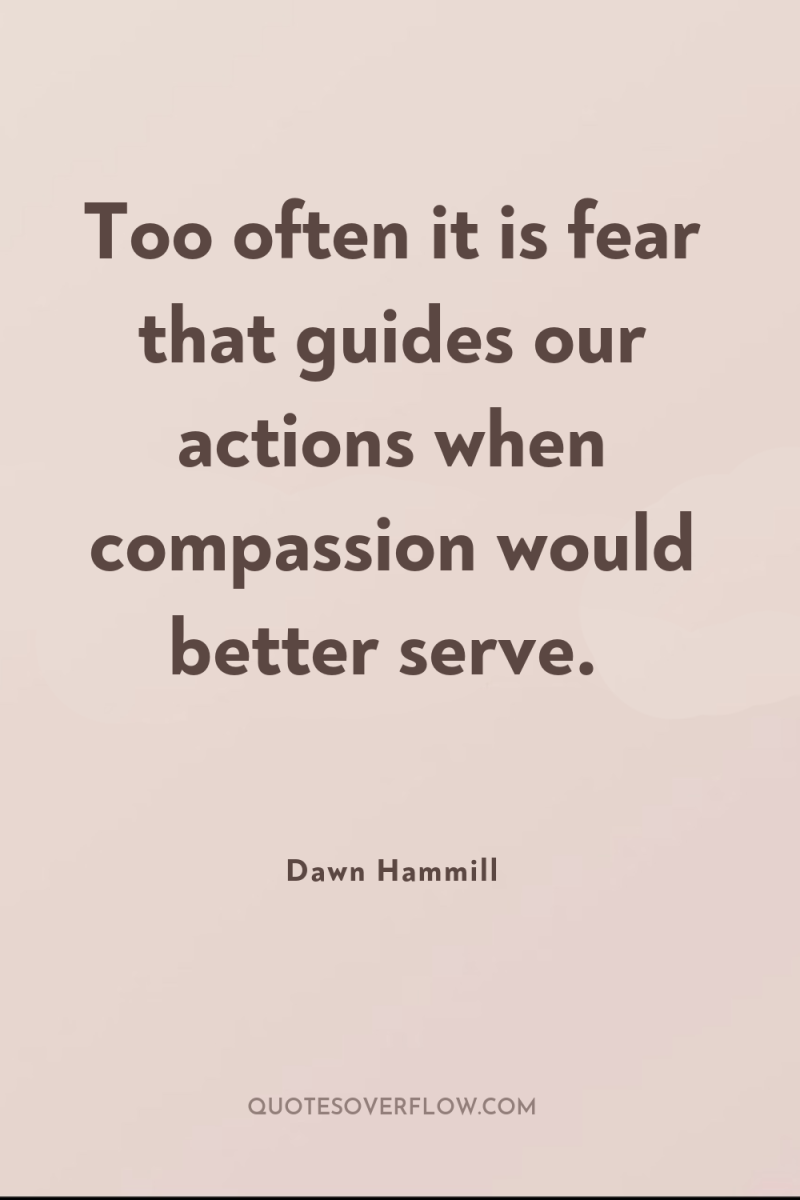1
As individuals die every moment, how insensitive and fabricated a love it is to set aside a day from selfish routine in prideful, patriotic commemoration of tragedy. Just as God is provoked by those who tithe simply because they feel that they must tithe, I am provoked by those who commemorate simply because they feel that they must commemorate.Criss Jami
2
It required all his delicate Epicurean education to prevent his doing something about it; he had to repeat over to himself his favorite notions: that the injustice and unhappiness in the world is a constant; that the theory of progress is a delusion; that the poor, never having known happiness, are insensible to misfortune. Like all the rich he could not bring himself to believe that the poor (look at their houses, look at their clothes) could really suffer. Like all the cultivated he believed that only the widely read could be said to know that they were unhappy.Thornton Wilder

3
Too often it is fear that guides our actions when compassion would better serve.Dawn Hammill
4
Relatedness is vital in a time when so many people suffer from social deafness. Emotional insensitivity being caused by a redoubtable “tin ear” makes it impossible to hear any signs of empathy or capture the vibrant qualities of ‘sharing’. ("Only needed a light ")Erik Pevernagie
5
Blaming therapy, social work and other caring professions for the confabulation of testimony of 'satanic ritual abuse' legitimated a programme of political and social action designed to contest the gains made by the women's movement and the child protection movement. In efforts to characterise social workers and therapists as hysterical zealots, 'satanic ritual abuse' was, quite literally, 'made fun of': it became the subject of scorn and ridicule as interest groups sought to discredit testimony of sexual abuse as a whole. The groundswell of support that such efforts gained amongst journalists, academics and the public suggests that the pleasures of disbelief found resonance far beyond the confines of social movements for people accused of sexual abuse. These pleasures were legitimised by a pseudo-scientific vocabulary of 'false memories' and 'moral panic' but as Daly (1999:219-20) points out 'the ultimate goal of ideology is to present itself in neutral, value-free terms as the very horizon of objectivity and to dismiss challenges to its order as the "merely ideological"'. The media spotlight has moved on and social movements for people accused of sexual abuse have lost considerable momentum. However, their rhetoric continues to reverberate throughout the echo chamber of online and 'old' media. Intimations of collusion between feminists and Christians in the concoction of 'satanic ritual abuse' continue to mobilise 'progressive' as well as 'conservative' sympathies for men accused of serious sexual offences and against the needs of victimised women and children. This chapter argues that, underlying the invocation of often contradictory rationalising tropes (ranging from calls for more scientific 'objectivity' in sexual abuse investigations to emotional descriptions of 'happy families' rent asunder by false allegations) is a collective and largely unarticulated pleasure; the catharthic release of sentiments and views about children and women that had otherwise become shameful in the aftermath of second wave feminism. It seems that, behind the veneer of public concern about child sexual abuse, traditional views about the incredibility of women's and children's testimony persist. 'Satanic ritual abuse has served as a lens through which these views have been rearticulated and reasserted at the very time that evidence of widespread and serious child sexual abuse has been consolidating. p60 .Michael Salter
6
Even more staggeringly, depression is a disease so bad that people are killing themselves because of it in a way they do not kill themselves with any other illness. Yet people still don’t really think depression really is that bad. If they did, they wouldn't say the things they say.Matt Haig
7
Most insensible, corrupt, cheap, disrespectful young girls run after bad, rude, cocky, nonsensical boys, but a mature, educated, thoughtful, virtuos lady opts for a wise, well breed, experienced, humble, modest gentleman.Michael Bassey Johnson
8
Those who are critical don’t like being criticized, and those who are insensitive have a deficiency in their senses.Suzy Kassem
9
You’re too sensitive’ victims of sexual abuse are told over and over by those whose reality depends on being insensitive. Most adults who have been in the victim role cringe when anyone tells them they are sensitive. In fact, sensitivity is a lovely trait and one to be cherished in any human being.Renee Fredrickson
10
You are not a better or wiser person simply because you’ve ceased to care.Clifford Cohen
11
Saying, “I don’t agree with you, ” or going so far as to say, “I think your belief structure is childish, ” does not amount to persecution. Insensitivity is not the same as harassment or oppression.Gudjon Bergmann